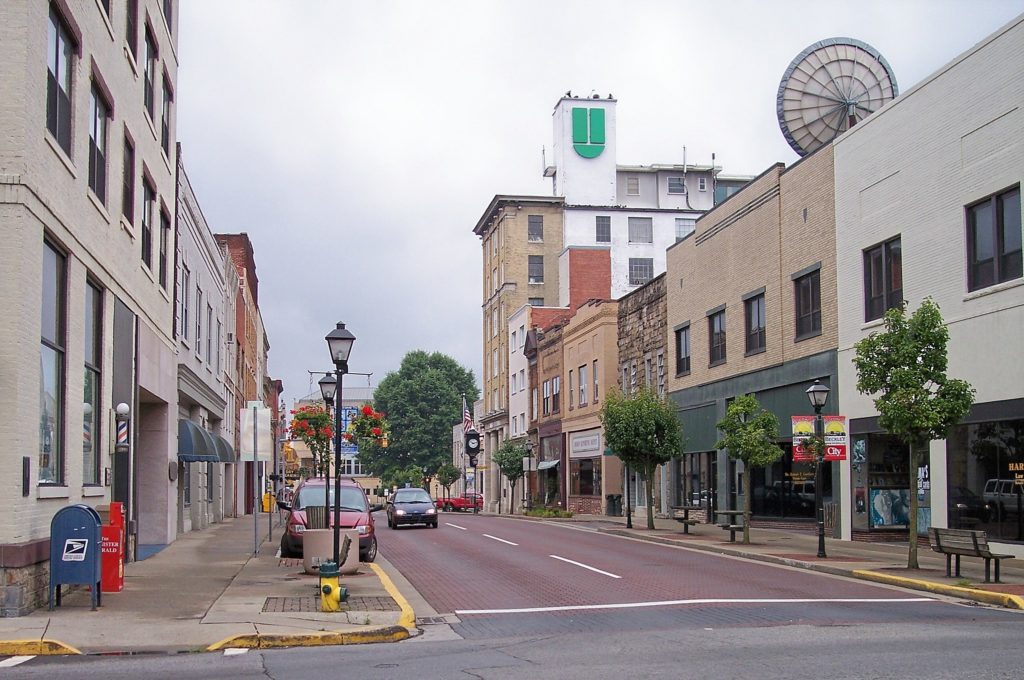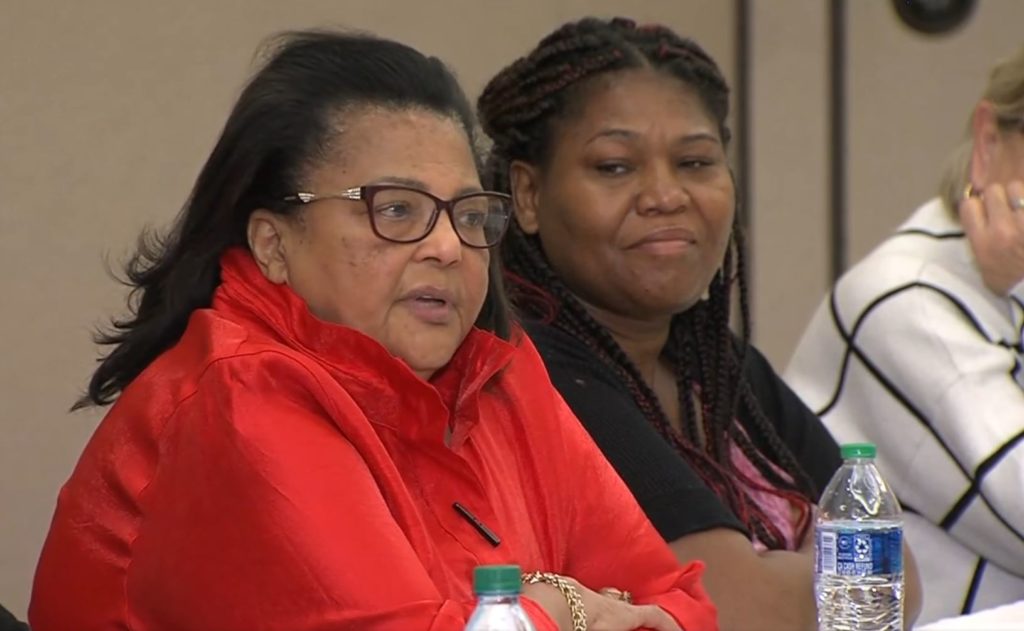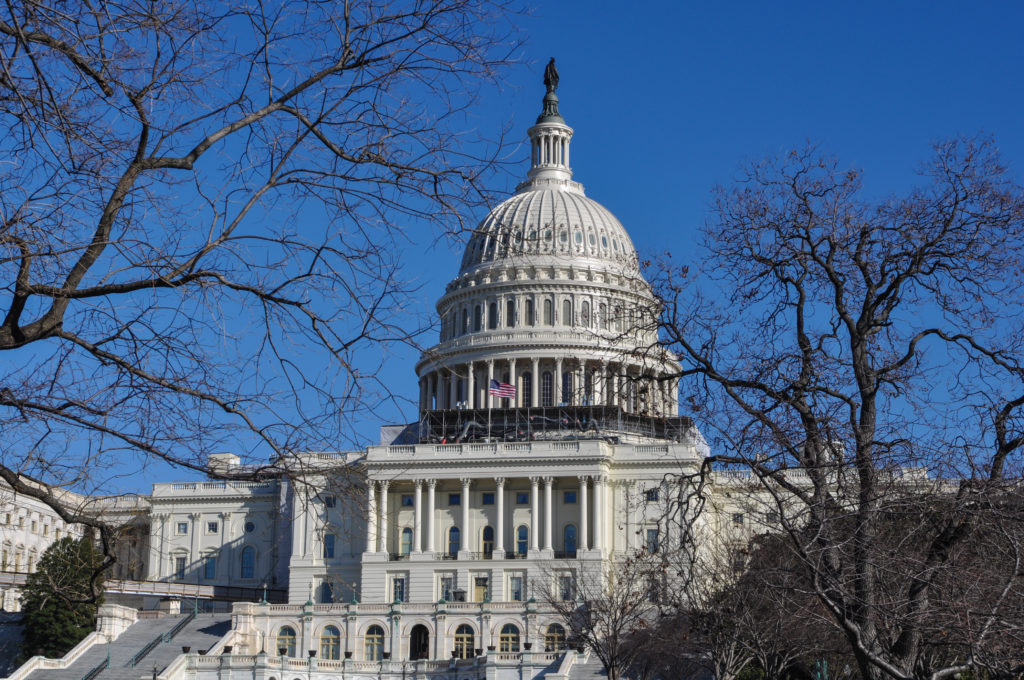A Ticking Clock, and The Faces of the American Child Tax Credit
“It’s helped our family through extremely tough times. And there are families that need it even more than us.”

A Cold Winter Ahead
Russell Peterson, 46, rubs his hands together in the crisp Vermont air. It isn’t truly cold yet — the gesture seems to be in anticipation of bitter nights yet to come.
Winter is on his doorstep, and the cost of heating Peterson’s home in Glover has risen dramatically this year.
“I watched the news and heard our heating bill would rise another 42 percent this year,” said Peterson. All across the Green Mountain State, gas heaters continue their low humming, quiet as ever but $1.10 per gallon more.
According to the local stations, the Vermont Department for Children and Families is servicing about 600 more households for heating assistance — a sign that more people are seeking help.
That gentle, glowing warmth that takes residence indoors with Vermonters during the biting cold of a lengthy winter is not as welcome a guest this year. It’s a subtle reminder of the bills that lurk nearby, just one frigid walk to the mailbox away.
Not far behind them, financial stresses also lie in wait. Questions of how bills are going to be paid. What costs can be cut to save money. Whether they’ll be okay.
“As a parent of a small child, I’m concerned on many levels,” said Peterson. His son, Zephaniah, is just six years old. “Heating oil is one of those things we rely on, and that’s $500 every two weeks for us.”
This year, he has extra help.
The Child Tax Credit, expanded this year in the American Rescue Plan, was transformed into a monthly series of direct child tax credit payments instead of a lump sum. Now, he’s receiving support each month to help keep his family clothed and fed — and warm.
So are most American parents. In fact, Columbia University says the monthly Child Tax Credit payments single handedly held 3.8 million American children above the poverty line in October of this year.
The Child Tax Credit gives parents $250 or $300 per child each month, depending on the age of each child, to spend however they see fit. For children under the age of seven, the extra $50 can help with costs like diapers, and clothes that younger kids tend to grow out of faster.
It’s also fully refundable, allowing Americans earning below the poverty line to benefit from the payments, even if they’re not earning enough to have a tax liability. This refundability, says the Jain Family Institute, is responsible for reducing 19% of all child poverty.
“For those thinking that the Child Tax Credit is not impactful, it is not only impactful. It could literally mean life and death for many American families.”
For all the good it’s done, the Child Tax Credit as parents know it today is in danger. As Congress continues to negotiate the provisions of the Build Back Better Act — which contains a one-year extension of the tax credit — the clock is ticking, and the final monthly payment is already on the way to parents.
This policy may be a political priority for lawmakers in Washington, but in communities ranging from small rural towns to America’s largest cities, it’s more than that — it’s a lifeline.
For many, extending the Child Tax Credit means the difference between being hungry, or being fed. Being cold on the longest nights of winter, or staying warm.
“For those thinking that the Child Tax Credit is not impactful,” says Peterson, “it is not only impactful. It could literally mean life and death for many American families.”
Every American family receiving the monthly credit uses it in different ways. According to parents like Peterson, that’s the power of the policy: a flexibility in how families can use the funds, depending on their needs.
“Just this morning, I asked my wife why our recycling and trash didn’t get hauled off,” said Peterson. “She said we couldn’t pay the bill, but the CTC arrived this morning so that’s what I paid the bill with. You really have to think about what bills you can pay and which ones you’re gonna have to juggle for longer. These checks make that a little easier.”
Even though each family can use the money as they see fit — a freedom that many parents have expressed sincere appreciation for — a series of patterns have emerged which can tell the story of how families are making use of the extra cash.
First, the Child Tax Credit has insulated families like Russell Peterson’s from rising costs, as Americans have been forced to contend with inflation brought on by a supply chain crisis.
Second, it’s removed barriers for parents who have wanted to return to work or start their own business, but haven’t had the means to do so until now.

“Beckley Main Street,” by Tim Kiser. CC BY-SA 3.0 US
Cost of Living on the Rise
One of the most immediate impacts that the monthly Child Tax Credit has had is in assisting parents with covering the basic expenses of raising a family.
For Americans who missed paychecks during the pandemic or still find themselves out of work, rising costs due to inflation have made food, utilities, and other expenses that much more difficult to cover. In 2021 alone, the Consumer Price Index has risen by 6.8 percent.
Beckley, West Virginia is a small town nestled in the Appalachian mountains. Here, one in five people live below the poverty line. It’s nearly double that for the 3,700 African Americans who live in Beckley.
That’s of particular concern to Loretta Young, Executive Director of Race Matters West Virginia.
Young has dedicated her career to serving the underserved in southern West Virginia, advocating on their behalf. According to Young, living in southern West Virginia comes with its own series of challenges. If there’s a place where the Child Tax Credit could do the most good for the most people, she says it’s here.
Access to clean water is minimal in some communities. Access to water at all isn’t something that can be assumed, and on top of these issues, it’s tough to find work here to pay for the reliable utilities that do exist. For those who are working, rising costs and unexpected expenses can make it just as tough to keep a job as it is to find one.
“I’m really ashamed to tell you that I have four children, and my four children have lived over the years sleeping in one bed.”
Young, who works across several counties in this part of the state, is at a roundtable discussion with parents, social workers and community leaders in Beckley. She’s there to offer stories she’s collected from her work with school systems and business leaders.
“When we look at the Child Tax Credit, we’re looking at psycho-social dynamics that have considerable impacts on the lives of children,” she says.
Household income plays a substantial role in determining everything from educational outcomes to nutrition and household safety for children. When basic needs are covered, children can thrive. In Beckley, the Child Tax Credit’s monthly payments had a near-immediate impact on the living conditions of its residents.
“One woman came to a friend of mine, who asked her how she was using her Child Tax Credit,” said Young. She says the woman saved up money from her Child Tax Credit to buy a toilet.
“Now, people,” said Young, with a firmness in her voice. “We live in the United States of America, in 2021. There are stories like this that, for me, touch the core.”
One story, in particular, Young highlighted from her work with teachers and administrators in the Greenburgh County school system.
“I contacted the assistant superintendent of schools in Greenburgh County, and I asked her if she’d help me gather stories about families who have benefitted from the Child Tax Credit,” said Young.
Within a few hours of asking, Young had a long list of anecdotes from teachers pouring in with stories of children’s lives changed for the better by the monthly payments.

One of the first stories she heard was told by a pre-K teacher about a four year old boy in her class who came to school with an added bounce in his step one day. Elated, the boy could hardly contain himself.
“Teacher! I have a bed all to myself!” he told her. All day long, the boy repeated his gleeful refrain. “I got my own bed, I got my own bed!”
When his mother came to pick him up that day, the teacher said, “your child said he’s really happy about that bed!”
“You know,” replied the mother, with a hint of sadness in her voice, “I’m really ashamed to tell you that I have four children, and my four children have lived over the years sleeping in one bed.”
Tears begin to well up in Young’s eyes as she describes the boy’s living situation.
“[The mother] says, ‘you know, it’s really been good for us, because the kids always argued over who had more covers, who had more sheets, who was taking the blankets.’”
In a room of social workers, community organizers and faith leaders who have made the struggles of working families their own each day, the bittersweet story of a life made better cuts through a silent room, reverberating with each of their complete and full attention.
The story represents the lives they try to touch every day — and the lives which stand the most to gain from an extended Child Tax Credit. Renewed with purpose, Reverend Alton Dillard pledges to meet with other members of the roundtable again — win or lose after the legislative battle ahead.
“I hope after today, that we connect with each other,” says Dillard. “What are we gonna do, as a collective body of people?”

Returning to Work
The Child Tax Credit has also assisted parents with returning to work. A study conducted by Humanity Forward and the Social Policy Institute at Washington University in St. Louis recently found that 94% of parents receiving the credit were doing the same amount of paid work or more.
In Beckley, Loretta Young says business owners have confirmed that study with their own experiences.
“Nancy Stewart owns a restaurant in Lewisburg,” said Young. “She said ‘The Child tax Credit has been great for [her] employees.”
“It’s very hard to find employees here,” Stewart told her. “For me, I have seen that the child tax credit coming on a monthly basis helped my employees stay on top of their bills. They don’t get so far behind that their utilities are turned off. “
“I’ve seen that they’ve been able to provide some of the most basic things,” Stewart continued. “If their car is broken down, they can get their car serviced. They’re better employees now, as a result.”
Subsequent Humanity Forward/Social Policy Institute analysis of data from the U.S. Census Bureau found that the credit was also encouraging entrepreneurship — especially among lower-income households — with an estimated 300,000 more Americans starting or working at their own businesses.
“I could take a major risk in starting this business because I knew even if everything failed, I would at least be able to buy groceries for my kids.”
Russell Toll lives in Tarrant County, Texas, and is one of those Americans taking a leap of faith to start a business and employ other people in his community.
Toll served as an officer in the United States Army for 14 years, including a 15-month combat tour with the 1st Cavalry Division in Iraq in 2006.
“I knew I wanted to apply the leadership lessons I learned and experiences I had towards healing others, especially my brothers and sisters in arms,” said Toll. To do that, he went to graduate school and became a bioengineer specializing in neuroscience.
“I had a dream of developing a new PTSD treatment available to those who could least afford it,” said Toll. “But as a dad of three little ones, I could not risk the loss of income and health insurance, especially when my wife was laid off and my 4 year old daughter caught covid.”
Reports now show that Toll’s circumstances — entrepreneurial ambitions stifled by concerns about financial security — are not uncommon.
According to an analysis of US Census Bureau data conducted by the National Bureau of Economic Research, recent surges in small business formation have appeared to coincide with the arrival of direct cash from federal aid spending.
“The pandemic stimulus and the Child Tax Credit finally gave me the opportunity to pursue my dream,” said Toll. “I hired a local attorney specializing in non-profit organizations and a few months later, Compassion Neuroscience was born – geared towards delivering the gold-standard of care – at cost.”
Had it not been for the financial support afforded to him by the Child Tax Credit, Toll said he wasn’t sure if he would have been able to get Compassion Neuroscience off the ground.
“I could take a major risk in starting this business because I knew even if everything failed, I would at least be able to buy groceries for my kids,” said Toll.

Time Running Out
As the final monthly Child Tax Credit payment planned in the American Rescue Plan begins to reach the bank accounts and mailboxes of parents across the United States, parents face a new challenge: how to cover the costs that they’ve been more capable of affording over the past six months.
One of the most common uses of the Child Tax Credit, according to census data and several surveys, has been food. According to the U.S. Census Bureau, food insecurity in households receiving the Child Tax Credit declined by 24% after the first series of payments were sent out in July of this year. It’s frequently cited by parents who write to Humanity Forward about the tax credit:
“The monthly payments coming in have helped our family budget for healthier groceries for lunches and home-cooked meals,” wrote Sara Wilde, a mother from Texas. “We can now better afford our children’s extracurriculars after school.”
Other parents are using the support to cover medical costs and accommodations for children and family members living with disabilities. Without the monthly credit, many would not have been able to pay bills on time.
“My partner had open heart surgery a few months ago,” wrote Victoria Antley from South Carolina. “If it weren’t for the CTC we wouldn’t have been able to make all of our bills during that time. It was very challenging but the payments have definitely helped.”
As the colder months close in, and children continue to grow out of last year’s clothes, parents have also spent parts of their tax credit on winter coats, shoes, and other clothing items. Because of the monthly nature of this year’s payments, those costs are absorbed as the need arises, enabling parents to stay flexible with the needs of their family.
“The tax credit has allowed us to buy new shoes and clothes as they grow out of them, without having to save and hope the clothes last,” wrote Lina M., from Oklahoma. “Unexpected expenses just aren’t as crippling! The monthly distribution just makes sense for our family budget.“
With the December Child Tax Credit payments now on their way to families, the Internal Revenue Service has stated that an extension would need to pass by December 28 for families to receive a January payment on time. The clock has now ticked past the eleventh hour for Congress to act.
For families like Russell Peterson’s in Vermont, each day passes with a growing anxiety about the new year ahead of them. Only a few days stand between him and a litany of difficult choices, each one more challenging than the next.
“It’s been a struggle, but when the Child Tax Credit hit our bank account this morning it was like ‘thank goodness that hit,’” said Peterson. “It was such a relief knowing it was gonna be there. And now, we’re staring down the barrel. It’s gonna be tough.”